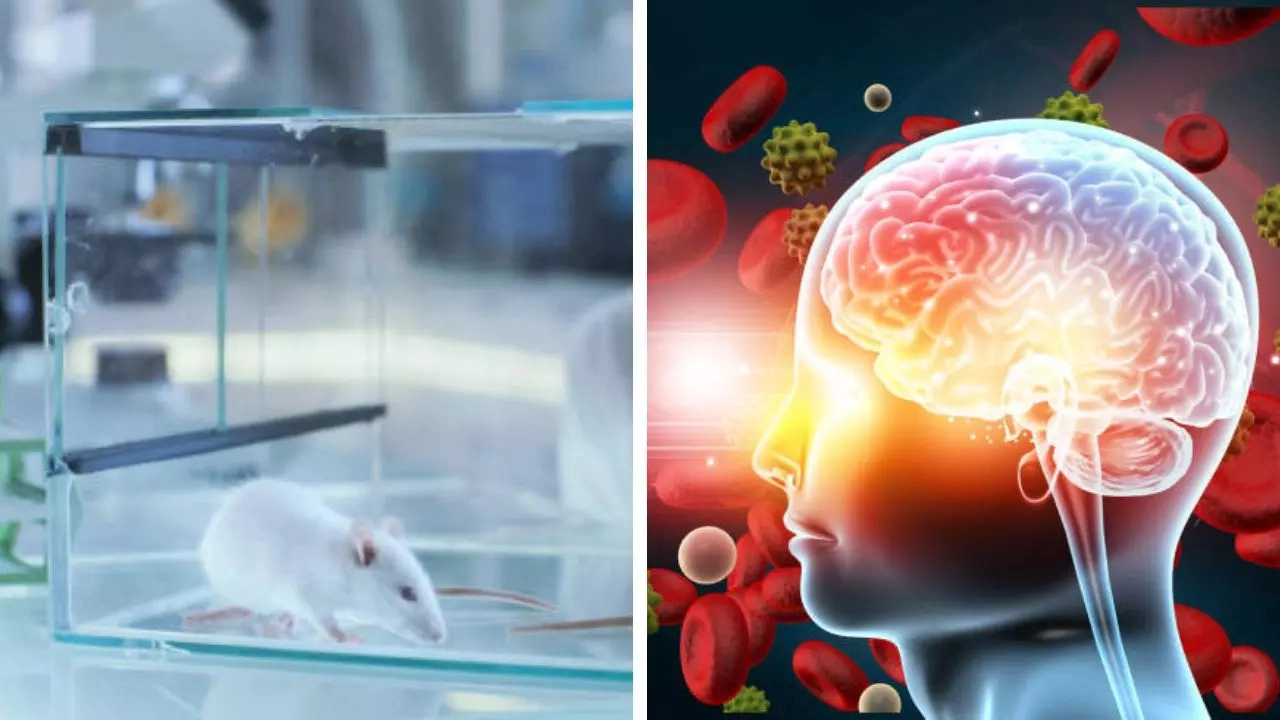Ashima Sharda Mahindra • 26 Jul 2024
Single-dose Nasal Spray Could Wash The Brain Off Toxic Alzheimer’s Proteins

The study, performed on mice, paves the way for new treatments against cognitive diseases which include dementia
A single-dose nasal spray could wash away build-ups of toxic proteins associated with Alzheimer’s disease from brain cells and improve memory, scientists say. An animal study – performed on mice - paves the way for new treatments against cognitive diseases which include dementia, researchers at the University of Texas Medical Branch said.
According to the World Health Organisation, at present, more than 55 million people have dementia, over 60 per cent of whom live in low-and middle-income countries. Every year, there are nearly 10 million new cases. Doctors say both dementia and Alzheimer’s result from a variety of diseases and injuries that affect the brain. Alzheimer's disease is the most common form of dementia and may contribute to 60–70 per cent of cases.
Alzheimer’s is caused by the abnormal build-up of two proteins in the brain – amyloid and tau - both of which have become an important target for treatments. Amyloid deposits, also known as plaques - build up around brain cells, while tau proteins form "tangles" within them. "In healthy brains, tau proteins help keep things in order," Texas University researchers explained. "But in neurodegenerative diseases, they can become abnormally twisted and form tangles that disrupt neuronal function and lead to cognitive decline."
How does the nasal spray work?
The team says it has developed a specific type of antibody, called TTCM2, which targets and clears tau plaques, or build-ups, restoring brain function. To deliver the antibody straight to the brain, they hid it inside tiny particles that can be delivered by a nasal spray.
For the spray to be more effective, scientists used nasal mucosa - the sensitive lining of the nasal cavity in mice with tau build-ups that are similar to humans and found clear plaques after just one spray, resulting in significant cognitive improvements. In addition, it also resulted in higher levels of proteins that are beneficial for brain cell communication. Usually, drugs are delivered to the brain in the bloodstream, but this means they must be able to cross the tricky blood-brain barrier.
The study
For the study - published in the journal Science Translational Medicine - a single dose of TTCM2 was given to aged mice that had been genetically altered to produce human tau proteins. After three hours, TTCM2 was distributed to various brain regions, compartments within cells where tau deposits were collecting, clearing out the toxic proteins.
The mice then underwent behavioural testing. Those that had been treated with TTCM2 performed “markedly better” than other mice, suggesting that the treatment combatted short-term memory loss in mice with advanced tau tangles.
Researchers said they noticed a significant increase in biomarkers in the hippocampus, the region of the brain associated with memory formation and cognitive functioning. “This advancement could significantly impact the treatment strategies for Alzheimer’s and related tauopathies, offering new hope for millions of patients suffering from these debilitating conditions," Sagar Gaikwad, a member of the team that studied the mice, told The Sun.
They plan to continue their research by further trials and eventually explore the potential of TTCM2-ms in humans.